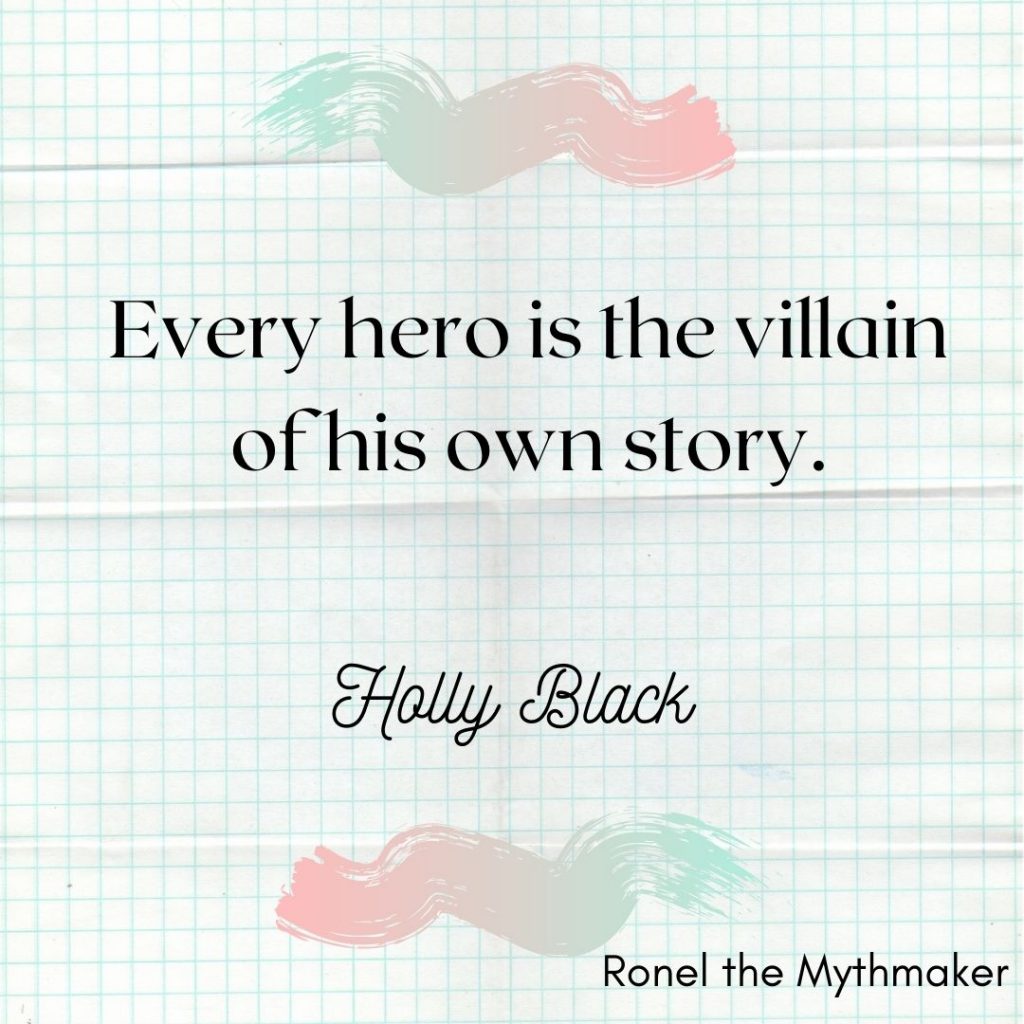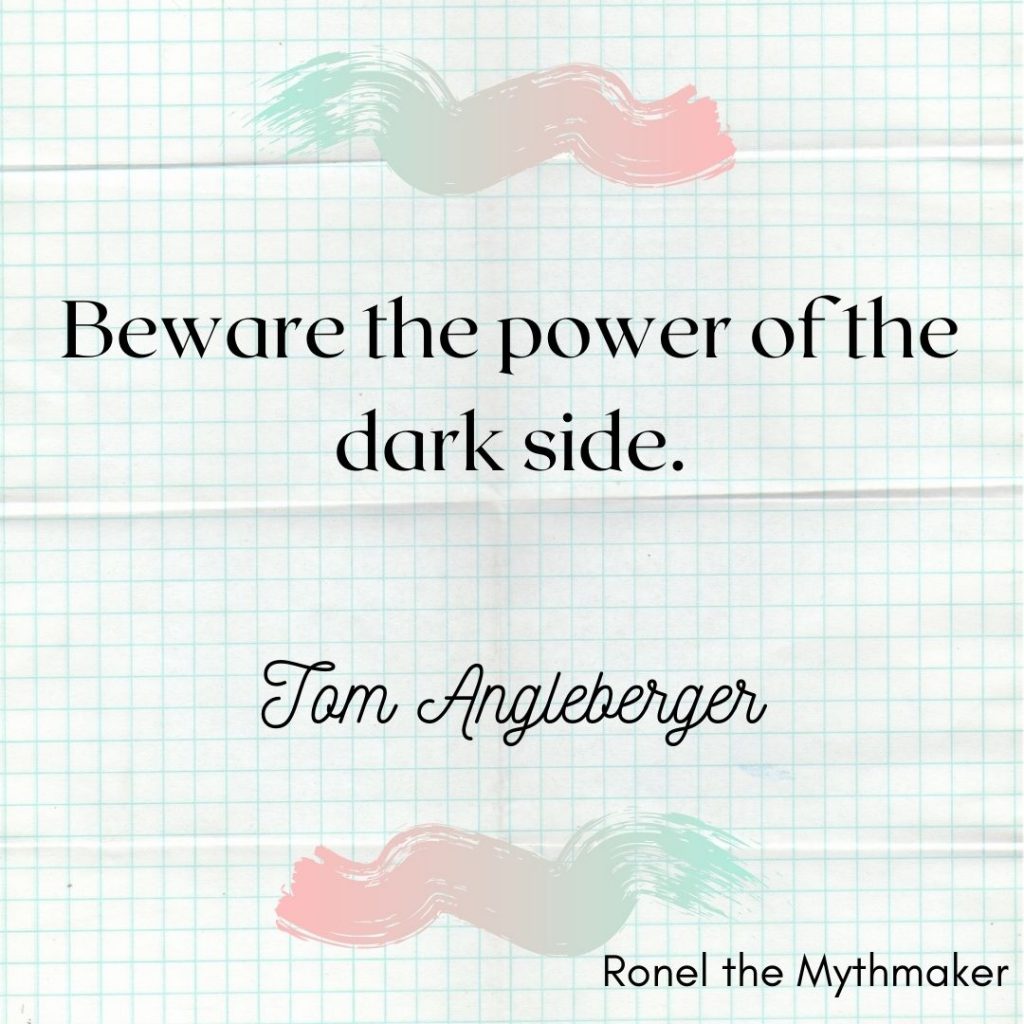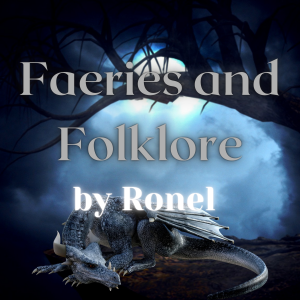It’s the first Wednesday of the month and time for another posting of the Insecure Writer’s Support Group.

I’ve been reading a lot lately. I’ve been doing various readathons and what stood out to me is how villains are used. It also made me think of a post I wrote over a decade ago about villains (which is now getting a much-needed rewrite).
According to Roget’s thesaurus, “villain” is interchangeable with:
- Evildoer 593.1: evildoer, wrongdoer, malefactor, sinner, villain, crook, criminal, bad person.
- Rascal 660.3: rascal, scoundrel, scamp, scalawag, devil.
- Role 704.10: character – villain, heavy, bad guy, antagonist.
- Actor 707.2: actor – villain, antagonist, bad guy, heavy, black hat.
These are the synonyms, among others.
Villain n 1 a wicked or malevolent person 2 (in a novel, play, film, etc.) the main evil character and antagonist to the hero 3 a mischievous person; rogue 4 Brit police slang a criminal > villainess fem n
Collins English Dictionary

Looking at folk and fairy tales, Vladimir Propp concluded that a fairy tale only has eight dramatis personae (he did his analysis on Russian fairy tales, but it works on others just as well). One of these characters is the villain.
The villain usually does something here:
- Does something to the hero’s family, starting the story.
- A fight or competition (conflict) between the hero and villain.
- Pursuing the hero (after hero won or took something from villain).
Though this does not always happen in every fairy tale, when it does, it is done by the villain. In loose terms, the wicked stepmother in Cinderella takes away the girl’s definition of family, they are in competition for the prince’s hand in marriage (she wants her daughters to marry him), and though she doesn’t chase the girl through the house before locking her up after she won the prince’s affections, it’s close enough. The sisters also act as the false hero (a villain who presents a false claim to being the hero) when they chop off parts of their feet to fit into the shoe.
The villain can also act as a guide. In the original Twelve Dancing Princesses, the girls were the villains that needed to be followed, observed and tattled on for their own good.
The villain can also dispatch the hero on a quest, something that really has to be done but by someone with real experience, and in this case the hero was sent just to be gotten rid of. I’m thinking of the Twelve Labours of Hercules and other quests from Greek mythology where the hero comes out on top, despite the obstacles.

When we write, we know that villains aren’t melodramatic, moustache-twirling, hand-rubbing, cackling sociopaths dreaming of ruling the world through their bad deeds in the name of evil. We know that fiction mirrors life (and vice versa). Villains, just like heroes, are driven by the conviction that their cause is just – even if the core driving him is greed, neuroses or something complicated from his past.
We talk about villains as if they are only men, but women make great villains, too.

But what makes a villain so necessary?
Villains can make or break a story. Every hero needs a bad guy to not only show their own heroic traits in contrast to villainous traits but also to push them to become better as they struggle against the villain. Heroes need obstacles. Villains create complex, interesting and down-right dangerous obstacles for the hero to overcome.
Sometimes the bad guy, isn’t a bad guy. Take Damon from The Vampire Diaries for instance. Just because Stefan thinks he’s the villain, everyone assumes that he’s a bad guy. But Damon has a whole history with his brother that no-one else is aware of. He has his reasons (motive!) to torture his brother in any way possible. He even does a little wish-fulfilment – he becomes the bad guy for a while because everyone wishes him to be. Oh, and he does so many things that the viewer wants to do that they identify more with him than with Stefan… Writing a convincing villain like that, the writer needs to do proper characterisation so the villain has motive for all of his wrong-doing and reason to be an adversary to the hero.

When we think villains, we automatically think the larger-than-life types found in comic books, movies and TV shows. So, here are my favourites:
- Lex Luthor (Superman): motivated by his ego, his hatred of Superman, and various things from his past, he has built a criminal empire and launched nuclear weapons (among other things).
- Professor Moriarty (The Adventures of Sherlock Holmes): brilliant sociopath who can manipulate anyone, does anything to taunt Sherlock and further his mad schemes.
- Darth Vader (Star Wars): knowingly accepts the Dark Side of the Force to do what he thinks he must, has his own theme song (among other things).
- Ra’s al Ghul (Arrow): the imposing leader of the League of Assassins, lives by the rules he’s set out for himself and his followers, a little off his rocker.
- Klaus (The Vampire Diaries): Relishes the fear and hatred of others, does whatever it takes to get what he wants, kills indiscriminately, puts family above everything else.
- Bellatrix Lestrange (Harry Potter): completely deranged, tortures her victims to madness, hunts anyone who stands against her master (Voldemort), and enjoys every moment.
- Katherine (The Vampire Diaries): She does whatever she has to in order to ensure her survival. If that means killing the men who love her… Well, rather them than her.
- Amanda Waller (Arrow): She does what she has to – whatever it takes – to keep the bad guys from destroying the world. Whether that means shooting down an entire airplane to get to one baddie, teaching Oliver how to torture, or create the Suicide Squad to take on the worst missions, she’ll do it without flinching.
- Sue Sylvester (Glee): She makes it her mission to destroy the Glee Club to save the children from misguided dreams that can only lead to heartbreak. Yet her obvious psychosis allows her to help them when they need her the most – like winning nationals in the third season.
- Regina George (Mean Girls): She keeps her popularity by terrifying and terrorising everyone else. Everyone will do as she says, no matter what lows she has to stoop to in order to get her way…

So you created the greatest villain ever. Your villain is so awesome, people love to hate them. Your villain is so villainous they’re able to turn themselves into the MC’s ally (á la Malcolm Merlyn in Arrow and Katherine in The Vampire Diaries). Oh, you had so much fun writing your villains. Sometimes you’ve been confused as to who the villains and who the heroes are in your story. Your villain had won, disappeared and done other things to evade the hero only to continue their plotting and scheming.
But now it’s the end. How do you deal with your villain?
You’re absolutely infatuated and you allow them to win. Yes, it’s the end of the series and you’ve decided to let them win. Now, I get it. I’ve written villains that have been so charismatic that they’ve fooled me: is the hero or the villain-turned-ally the bad guy? You have to remember who the real hero is and stay true to your story.

You know who the good guys and who the bad guys are. Your villain was absolutely nasty and you’ve decided to kill them. It’s a popular choice. Readers want justice – think how happy you felt when Voldemort died in the last Harry Potter book. This makes a neat ending, with no loose ends. Unless your world has ghosts and other horrible ways for your villain to make a comeback…

Your villain had slowly, but surely, seen the error in their ways. Letting them win would only cause them to go into a suicidal spiral. Killing them would be as bad as running your car over the little old lady outside the grocery store (even though she’d continuously rammed you with her trolley earlier…). All you can do is to redeem them. But you can’t just snap your fingers and it’s done. It has to be part of the story (like in Megamind). Just like with everything else, the character has to have motivation for the change. And the reader has to see how this character is struggling not to do evil. This is a hard thing to set up properly. But if this villain is ready for it, then it could be spectacular.

Your villain is so awesome that no-one can kill her. She’s so badass there’s no redeeming her. And if she were to win, the world will burn. What now? Neutralise her. And not in the “kill her” sense. If she’s only a threat in battle/with magic, take away her powers (á la Avatar: The Last Airbender where the fire lord’s firebending was taken away). Though probably as twisted and evil as ever, this villain is no longer a threat. Or lock her up in a special prison where her powers cannot work and no-one can rescue her. The point is, the threat had been neutralised.

Okay, so sometimes calling them the antagonist is more apt. But saying villain is so much more fun.
I know I didn’t really talk about the books I’ve read, but you can always check them out in my review posts!
Any favourite villains? How do you deal with villains in your books?
*If you have difficulty commenting, check that you’ve ticked the data use block beneath the comment before leaving your comment. (Protecting your privacy per regulations.)

The non-fiction selection was vetted by me and you can check out my review on Goodreads if you want to know what I liked about it.

Want a taste of my writing? Sign up to my newsletter and get your free copy of Unseen, Faery Tales #2.








Loved the quotes you chose to share about villains. Good ones aren’t just the “bad guys.” They are complicated people with complicated motives, at least when they’re written well.
Thanks, Natalie 🙂
Always an interesting read, Ronel. I’ve saved a few of your quotes for posterity!
Thanks, Jacqui 🙂
Great post, Ronel! I agree with Natalie and Jacqui. Great quotes. Of course each good villain has his/her own support music/theme. Ah, the femme fatale. Like I said, great post, Ronel.
Thanks, Victoria 🙂
What’s funny is I have never incorporated an actual villain in any of my stories. Situations – and the main character himself – have been the adversary.
Which is always a good way to go — especially being your own worst enemy!
You’ve picked such interesting quotes Ronel. Thoroughly enjoyed reading this post 🙂
Thanks, Damyanti 🙂
Villains make a great topic. In Fractions of Existence, there’s one who is in Xavier’s way of achieving his goal. He “defeats” Xavier, but later causes Wend to get on her journey. There’s a much larger group who are villains, as they want the opposite of what the Existence characters want. From their point of view though, they’re doing the right thing. To Wend, Jez might be a villain.
Just an example of your point.
“Libraries will get you through times of no money better than money will get you through times of no libraries.”
―Anne Herbert
My IWSG blog post discussed my love of originality. I’m looking forward to the bout of books readathon and WEP’s flash fiction later this month.
Life threw me a curveball with a neighborhood crisis this week, but we got through it.
Winnie the Pooh is the world’s Ambassador of Friendship. In the US, National Friendship Day is the first Sunday of August. #FriendshipDay2022
J Lenni Dorner (he/him 👨🏽 or 🧑🏽 they/them) ~ Reference& Speculative Fiction Author, OperationAwesome6 Debut Author Interviewer, and Co-host of the #AtoZchallenge
Can’t wait to start reading Fractions of Existence 🙂